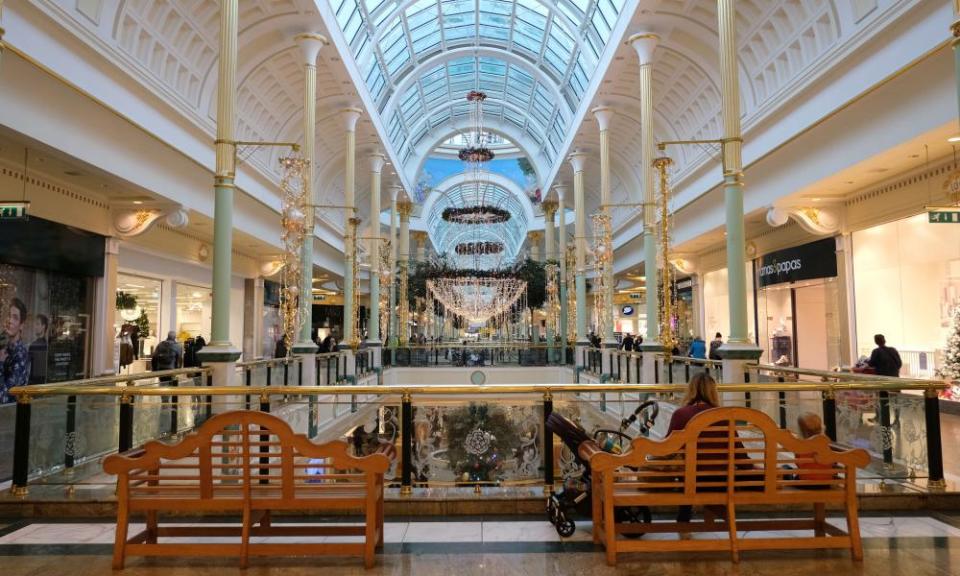Shopping centre chain seeks up to £1bn to shore up finances

Intu Properties, the company behind shopping centres including the Trafford Centre in Manchester and Lakeside in Essex, could seek to raise as much as £1bn to shore up its precarious finances.
The heavily indebted firm’s share price has collapsed after high-street groups including Arcadia and Debenhams, – which occupy a lot of space in its buildings, last year resorted to emergency financial restructurings to close shops and cut their rent.
It is thought Intu could launch the cash call alongside its full-year results at the end of next month, the Sunday Times suggested. The group is hobbled by a near £5bn debt pile and is trying to whittle it down by selling off properties. Last month the sale of one of its Spanish shopping centres raised €237.7m (£203m).
Intu declined to comment.
At the end of last year Intu’s chief executive, Matthew Roberts, signalled that a cash call was on the cards but did not give any details about its size or timing. He said: “Our number one priority is to fix the balance sheet. We have a clear plan to do this … these options include disposing of assets through to raising equity, which is also likely to form part of the solution.”
The Intu share price has crashed 80% in the past 12 months, leaving the group valued at just £310m, which is a fraction of the £8bn at which its properties are officially valued. The fall from grace has been dramatic: two years ago it was the target of a £2.9bn takeover bid from a consortium that included its major shareholder, Peel Group, which was abandoned because of Brexit-related concerns.
John Whittaker, the billionaire behind Peel, which has a 27% stake, is supportive of the fundraising plan, the Sunday Times said.
A cash call would test investors’ appetite to back retail property after the shock gating of the UK’s biggest property funds in December. The £2.5bn M&G Property Portfolio pulled down the shutters, admitting it could not sell properties fast enough to repay the investors who wanted out. The temporary ban has not yet been lifted.
At the time M&G blamed the flight of investors on the uncertainty created by Brexit and “ongoing structural shifts in the UK retail sector”, adding: “Deteriorating market conditions have significantly impacted our ability to sell commercial property.”
There had been no sign of light at the end of the tunnel when Roberts updated investors in November. He said the company’s rental income had fallen by 9% in 2019 and he expected fresh declines in 2020 as the high-street crisis continued.
A succession of household names, including the department-store chains House of Fraser and Debenhams, have resorted to rescue deals to stay in business over the past two years. Others, such as Karen Millen and Coast, have shut up shop and moved online. There has been a fresh wave of store closures this month as Mothercare shut its UK chain while Debenhams shut 19 stores as part of its turnaround plan.
The future of the department store chain Beales will be decided this week after it warned a week ago it was at risk of going into administration.
Jonathan De Mello, the head of retail consultancy at Harper Dennis Hobbs, said: “£1bn is a lot for Intu to raise but even if they do get it, they will still have to sell more assets.”
He said the Trafford Centre in Manchester was its “jewel in the crown” alongside Lakeside, while its other centres were at best “above average”.
De Mello suggested there was still more pain to come for landlords this year as struggling retailers continued to use company voluntary arrangements – a form of insolvency – to close unprofitable sites and reduce their rents. Other retailers were also seeking rent reductions as stores are hit by the shift to online shopping. Against this backdrop there was “very limited appetite” to buy shopping centres, De Mello suggested.

 Yahoo News
Yahoo News 